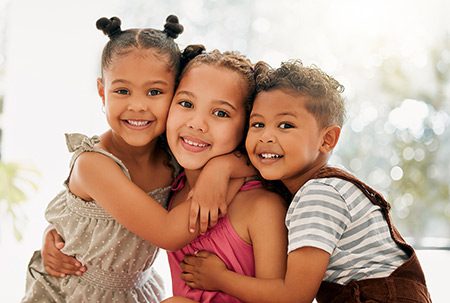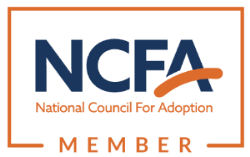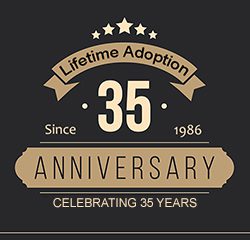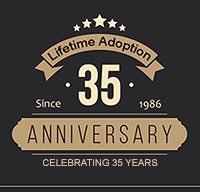Now that you have adopted an older child, including sibling groups
 According to the most extensive national data ever compiled on adopted children and their adoptive families in the United States, the majority of adopted children are in good health and rank high in social and emotional well-being. 85% of adoptive children as reported, by their adoptive parents, are in very good health. And 88% of older adopted children from 6 years old and older show positive social behaviors.
According to the most extensive national data ever compiled on adopted children and their adoptive families in the United States, the majority of adopted children are in good health and rank high in social and emotional well-being. 85% of adoptive children as reported, by their adoptive parents, are in very good health. And 88% of older adopted children from 6 years old and older show positive social behaviors.
According to the study’s co-author, Sharon Vandivere, a researcher with Child Trends, a nonpartisan Washington research group. That’s contrary to the “negative stories that capture media attention,” about adoption.
Older children will naturally have some additional needs and concerns. They will need a period of adjustment while learning about living in your home. New cultural customs might also be part of the learning curve. Patience and education on your part as a parent is the key to your success and your child’s overall experience.
It is important before you even bring your child home that you have a network of friends and other adoptive parents that you can learn from and gather tips on what has helped them in adopting siblings, and older child, a child from another country, or a child that has been separated from family members and will be going through some grief.
Many experts agree that in almost all adoptions of non-infants, there is a “honeymoon” stage. Where all seems wonderful. Often older children that have had numerous homes will also have a “testing” period, in which they test your loyalty and love by acting out and misbehaving to see if you too will “send them away” becoming aware of these possibilities helps you with your response and your ability to help your child through this period. It is also common for this testing to reappear at different times, triggered by situations, holidays, new family members and memories.
Your responsibility as a parent is to be fully educated and prepared. It will serve you both well if you read as many books possible on international adoption, parenting older, abused, and neglected children. Books written by others that have been where you are today and what you may encounter in the future will be very helpful in raising your child.
Many parents take the attitude that “love” alone will heal it all. If that were the case, many of the birth parents of these children would not have made an adoption plan. Remember it is education on your part, early on, that is going to make your lives easier and more memorable. This will bring you both closer together in the bonding process. So, don’t delay, start reading. Becoming a book bug, will serve your family well. There are many sites dedicated to sibling adoption and adopting older children that can be helpful.
In many cases, children will internalize their feelings. Some children are fearful of saying or doing anything wrong, as was the case of a 9 year old I worked with, sadly she was whipped by her step dad throughout her short life. Having as much information as possible from your adoption worker, social worker, foster parents and directly from the birth family will help. Understanding that many birth parents might not want to share any abuse with you out of embarrassment or to save face. Don’t push the issue but develop a relationship with them if possible allowing facts to naturally unfold over time. That is how many adoptive parents gather information along the way.
You must be willing to accept your child unconditionally as your own, no matter what you find out. Remember many children have baggage and when adopting older children, you must realize that this means more time and attention, patience when correcting. Good parenting skills will help you in the process.
Some children will be clingier at the beginning when they first come home, others will be distant and fearful. Some show very little emotion and other children will show, at times, inappropriate behaviors that will need to be addressed right away in private.
By Mardie Caldwell, C.O.A.P., founder of Lifetime Adoption.
Adoptive mother, author, and radio talk show host.
For more information on adoption please contact Lifetime Adoption,
or call (727) 493-0933.
Get More Info Now
If you live outside of the United States, please click here.
Mardie Caldwell
Funding Your Adoption
Called To Adoption
Open Adoption Webinars

Lifetime Adoption, Inc. is a Licensed Florida Child Placing Agency. (License #100084254)
Lifetime Adoption Center is a BBB Accredited Business with an A+ rating
Copyright © | Lifetime Adoption








